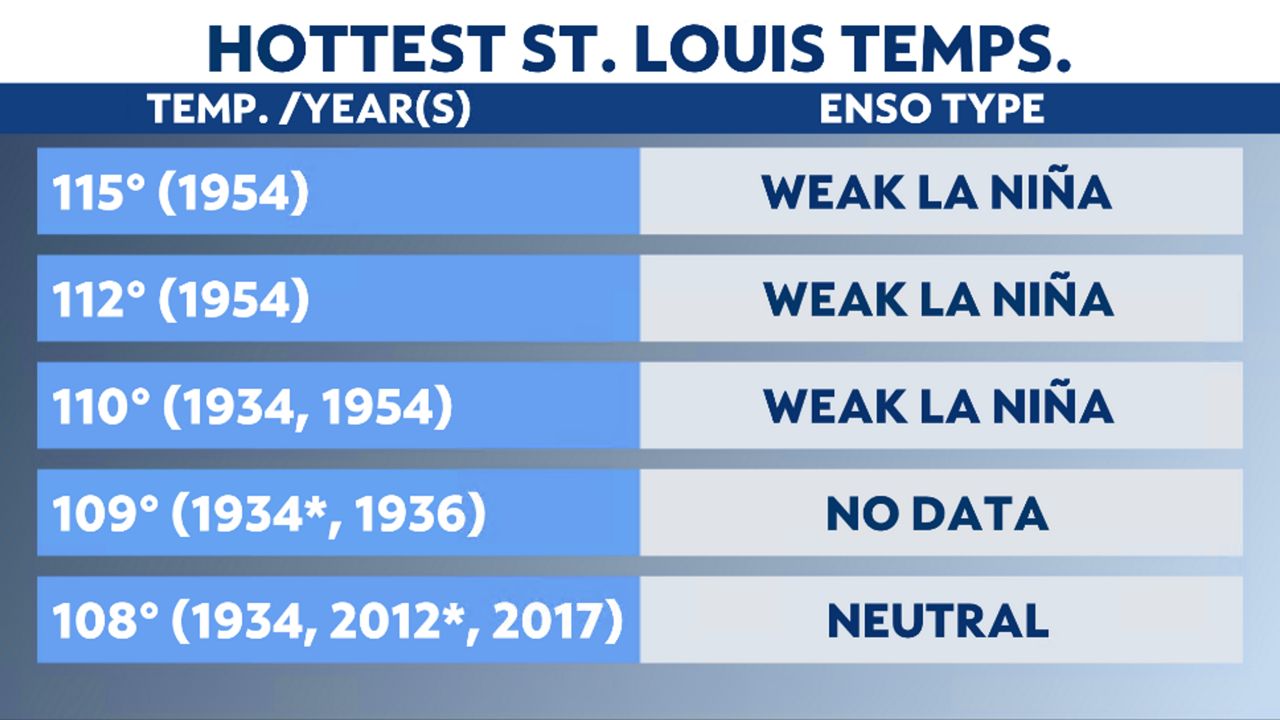The global temperature recently set a record high of 62.92 degrees unofficially.
And while that may seem extreme, the Earth had a string of record-breaking days beginning on July 3 when the mercury climbed to 61.16 degrees. July 4 saw the mercury climb worldwide to 62.92 degrees, surpassing the record from one day earlier with July 5 tying the previous day’s record.
While global temperatures may have been scorching, here in St. Louis, temperatures stayed mostly below average that week. But that begs the question, how hot is the hottest temperature ever recorded in St. Louis?
Looking through the archives, the hottest temperature ever recorded in St. Louis was at the Lambert International Airport on July 14, 1954. The mercury rose to a steamy 115 degrees.
The top three hottest temperatures occurred in the year 1954, with a temperature of 112 degrees on July 18 and 110 degrees on July 12. It's hard to imagine St. Louisians handling that kind of extreme heat without air conditioning.
Thankfully, AC is more widely used in the modern era because we saw extreme heat during the summer of 2012 and 2017. The temperature reached 108 degrees on July 22, 2017, and on both July 25, 2012, and June 28, 2012.
2012 also recorded two days with temperatures of 107 degrees.

The mercury soared to 100 degrees or warmer seven times in 2022, with our hottest day observed on July 23, 2022. That day, the temperature hit a high of 105 degrees and, while certainly hot; it missed the record by a mere 3 degrees because that record of 108 degrees from 1934 still holds strong.
As for whether a strong climate signal, like El Niño or La Niña, seems to cause extreme heat in some years, the data doesn’t support it. Warning Coordination Meteorologist with the National Weather Service in St. Louis, Kevin Deitsch explains, “Particularly in the summer, there is no clear signal from El Niño/La Niña."
Adding, "That being said, as we head into the winter, we tend to see a bit more of a signal that El Niño winters tend to lean toward warmer than normal."
As of mid-July 2023, the mercury has not reached triple-digit heat. The closest the St. Louis area has come to 100 degrees is 97 degrees on June 24.
Other parts of the state have seen extreme heat. In fact, the heat is responsible for a road buckling in Doolittle, Mo.
Our team of meteorologists dives deep into the science of weather and breaks down timely weather data and information. To view more weather and climate stories, check out our weather blogs section.



